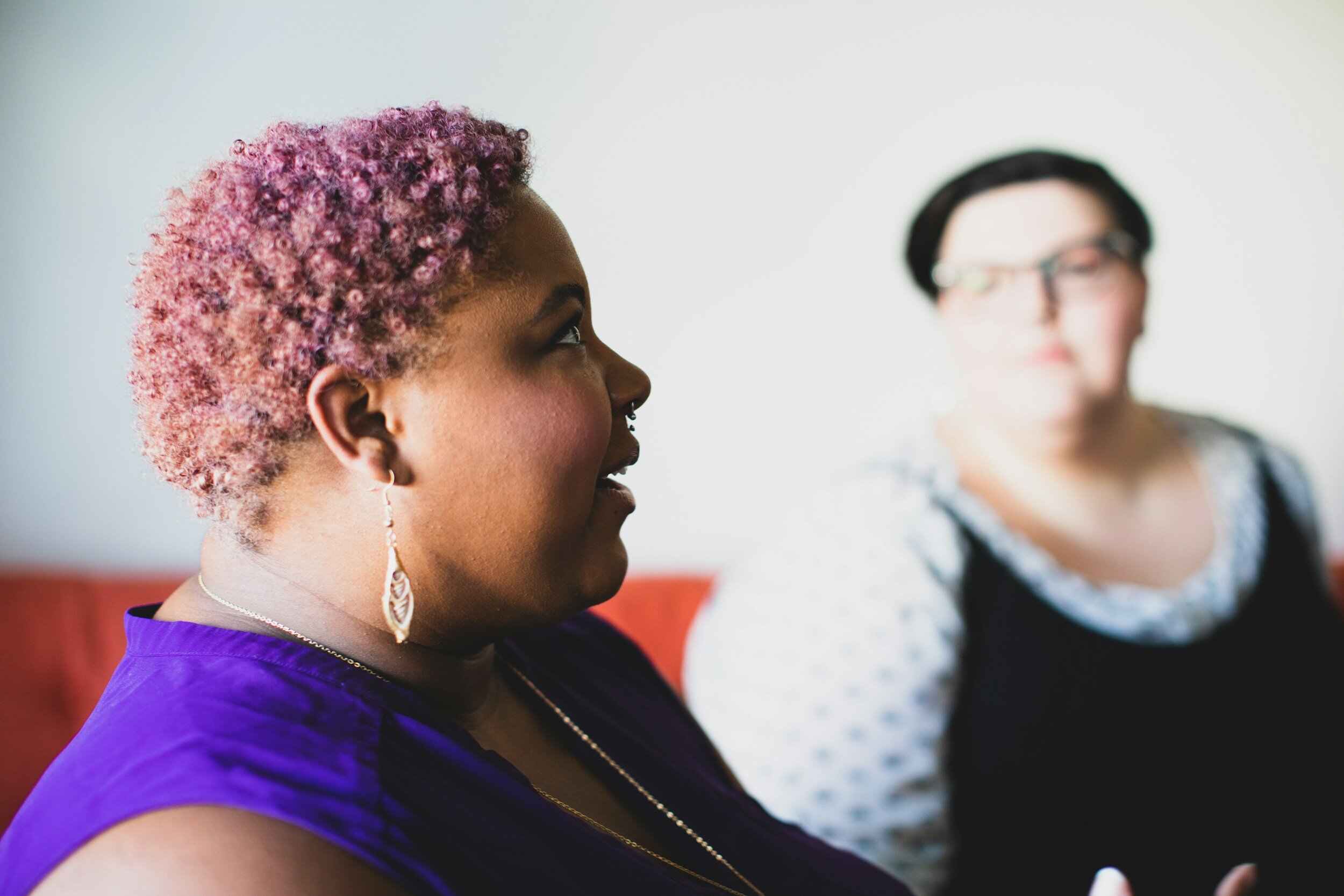Eating Disorder Therapist breaks down Body Positivity vs Body Neutrality
So you’ve heard about body positivity but what about body neutrality?
Self-love, body positivity, body neutrality... these are all concepts that we've seen floating around social media over the last few years. So, what is the difference between body positivity and body neutrality? And which is most impactful to healing your relationship to your body and to food? Let’s talk about it!!
Where do the fat liberation and body positivity movements originate?
But first it’s important to acknowledge where these concepts of “body positivity” and even “body neutrality” originate from. Each of these ideas stem from the fat liberation movement. Fat, Black women have been on the front lines of fat activism since the 50s. And fat, disabled, queer, BIPOC folks have cultivated and spread what we know today as the body positivity movement. Their trailblazing in this movement was not only as an act of self-acceptance, but most importantly it an act of social justice. Activist and New York Times Bestselling Author, Sonya Renee Taylor, discuss in her powerful book, The Body is Not an Apology that loving yourself in a society built on anti-fatness and anti-Blackness is a radical, rebellious act. So with that being said, it is essential to be aware and to continue learning about the history of these movements. We must credit the marginalized individuals whom these movements were created by and for, as we embark on our own individual healing journeys.
The difference between body positivity and body neutrality
So you’re struggling with bad body image? Let’s talk about it! Let’s discuss which approach might be the most helpful to integrate into your body image tool kit: Body Positivity or Body Neutrality?
Body Positivity
Over the last few years, we have seen a major push from pop culture and social media influencers encouraging us to love ourselves and our bodies no matter our shape or size. To have fondness towards our rolls and cellulite. This tends to incorporate the use of positive physical affirmations. Think, “I like my legs.” or “My eyes are beautiful.” Similarly, the body positivity movement has been whitewashed and diluted down to this same message of “you should love your body and its flaws”. This sentiment is not bad or wrong but reaching this place of self-love can feel unattainable for many people, especially for those living in marginalized bodies. This over-simplified, watered-down version of body image and self-esteem overlooks the real impact and harm the societal beauty standards have had on folks, but especially those in fat, Black, Brown, trans, and disabled bodies. Also, this type of affirmation-based, “I like (X) body part” body positivity can lean towards resembling a form of toxic positivity.
Body Neutrality
Body neutrality takes the focus off of identifying parts of the body that we all-the-sudden “love” and promotes taking a more neutral approach with our body. This can look like trying to stop yourself when you start judging your body and just noticing what is going on from a neutral standpoint. Body Neutrality also differs from body positivity because it moves the focus away from how your body looks, as our bodies are not ornaments for people’s viewing pleasure. Instead, the emphases turns to a non-judgmental approach of how your body carries you through life and practicing gratitude for what your body does.
Even with body positivity trending on social media for the past few years, the reality is our society is deeply rooted and entrenched in anti-fatness. Diet culture is a $72 Billion industry per year in the US alone. Working towards a mindset of neutrality regarding your body can feel like a more realistic goal to achieve than that of fully loving or always feeling positive towards your body.
What works best for you?
Don’t get me wrong, if the idea of body positivity or self-love feels helpful and beneficial to you and your own healing, please continue with that course. But if self-love has felt difficult or impractical for you, know you’re not alone. You might consider introducing body neutrality into your body image practice.
What feels impactful for you might change day to day or maybe finding a balance of multiple approaches works for you. Just do you, boo!
You don’t have to navigate this alone, we are here to help!
Stark Therapy Group offers in-person therapy in our beautiful office in Tustin, California. We offer virtual therapy throughout all of California. Click here to schedule a free consultation. If this post resonated with you, let us know you’d like to work with Nicole.
If you’d like to learn more about body positivity vs body neutrality and the history of these movements, please see the resources linked below.



